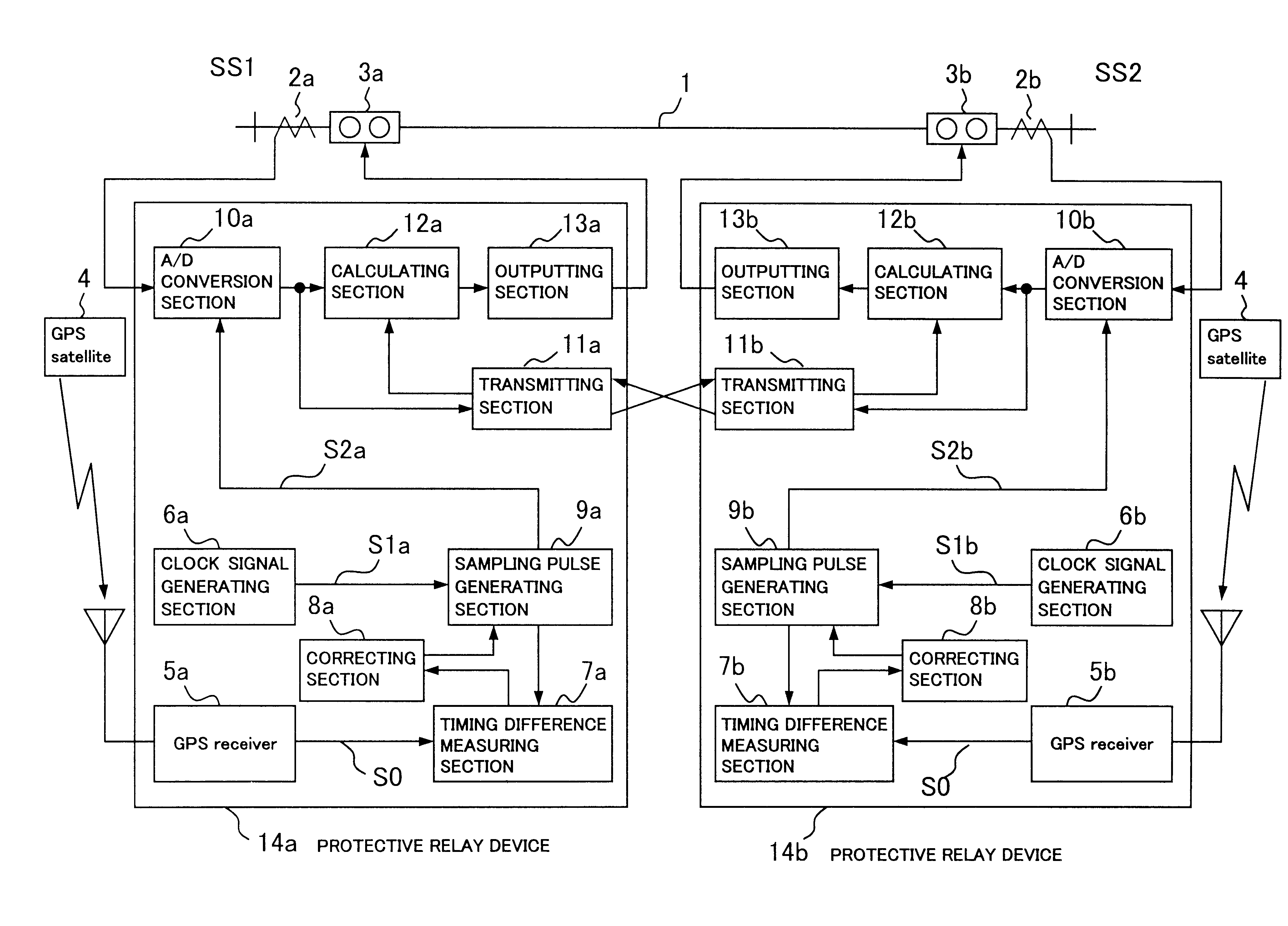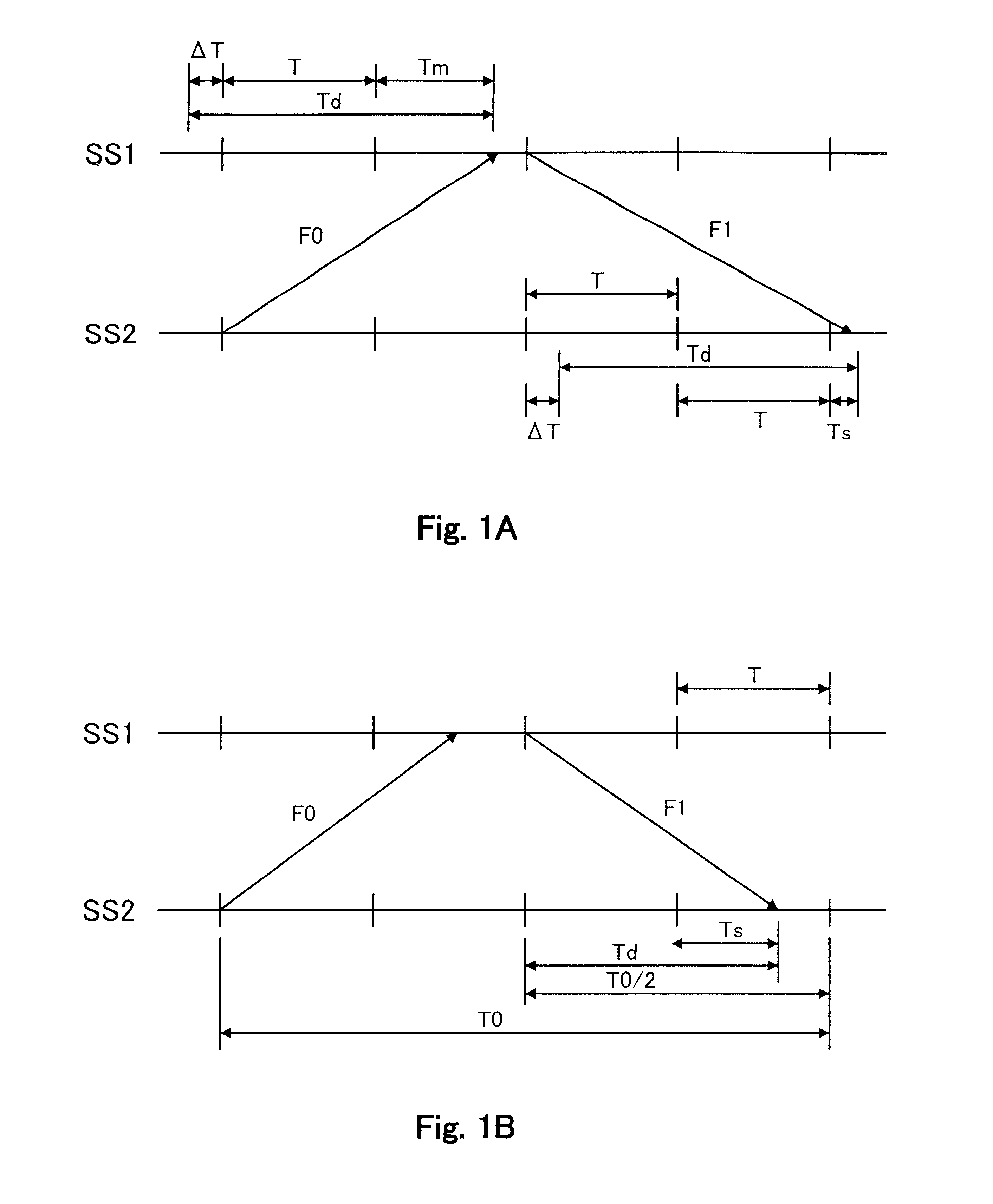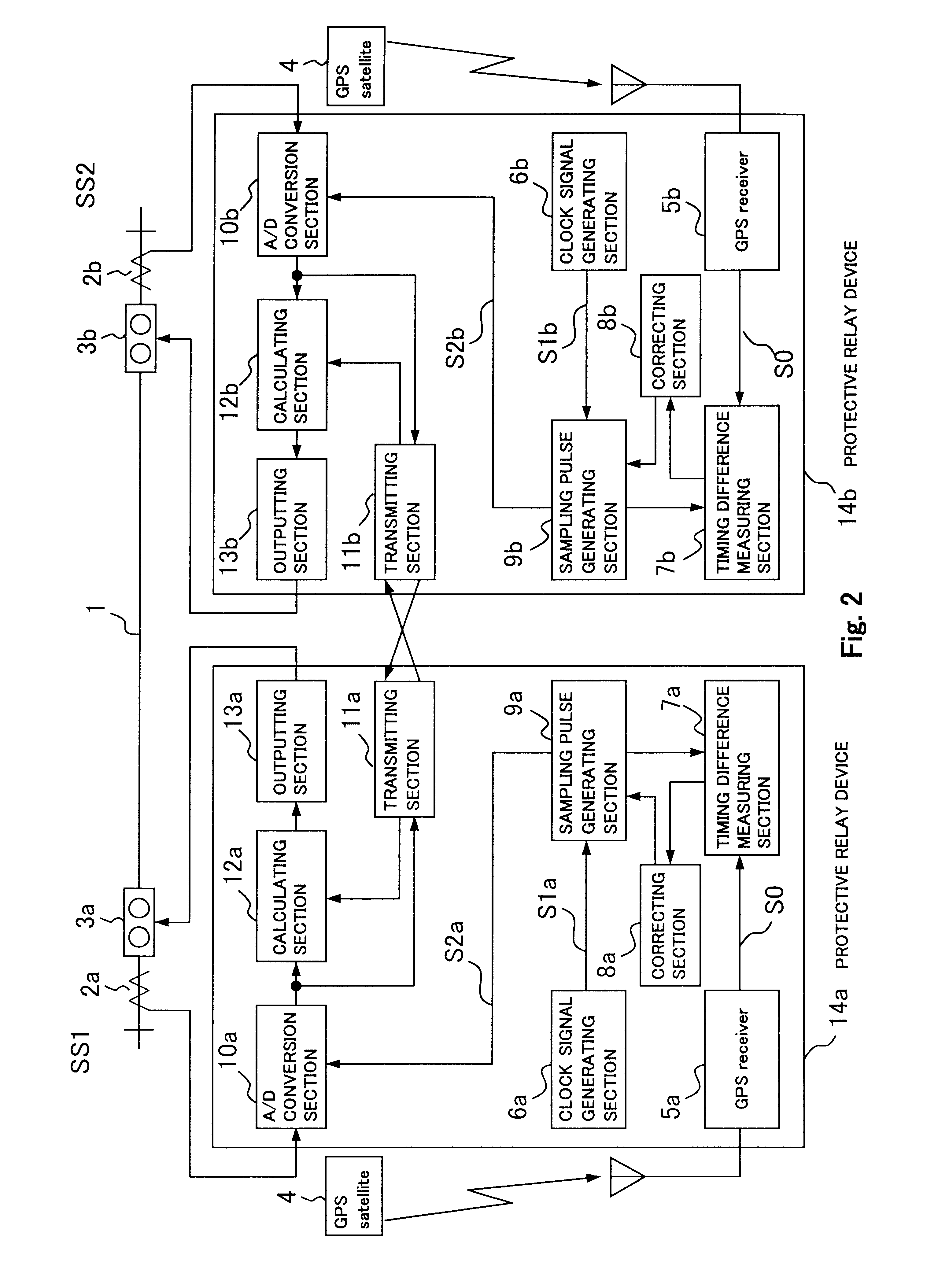Digital protective relay system
a relay system and digital technology, applied in the field of protective relays, can solve the problems of reducing the rate of operation, the delay time of transmission to both directions on the transmission line,
- Summary
- Abstract
- Description
- Claims
- Application Information
AI Technical Summary
Benefits of technology
Problems solved by technology
Method used
Image
Examples
first embodiment
(First embodiment)
FIG. 2 shows the diagram showing a first embodiment in accordance with the present invention.
There is shown a protective relay system protecting a transmission line 1 through a pair of protective relay devices (a protective relay device 14a and 14b), which is provided at a terminal SS1 and a terminal SS2 opposite to each other across the transmission line 1. Provided at the respective terminals are current transformers 2a and 2b for detecting the current through the transmission line 1 and for adjusting the detected current for the protective relay device 14a and 14b, and circuit breakers 3a and 3b that are operative responsive to the protective relay device 14a and 14b.
The protective relay device 14a and 14b respectively receive the currents from current transformer 2a and 2b, and periodically sample the currents and digitize them to obtain current data through A / D conversion sections 10a and 10b.
The obtained electrical quantity data which is exchanged through a t...
second embodiment
(Second embodiment)
FIG. 4 is a block diagram showing a second embodiment in accordance with the present invention.
In FIG. 4, the same elements as shown in FIG. 2 are identified with the same reference numerals as used in FIG. 2, and explanation is omitted for the sake of brevity. The difference between the first embodiment and this embodiment is the addition of a differential current operating sections 15a and 15b.
With the first embodiment, if the timing signals normally output from the GPS satellite 4 are not output for some reason, with the result that the fixed cycle pulse S0 from the GPS receivers 5a and 5b will not be output, the timing difference measuring section 7a and 7b and the correcting section 8a and 8b will not function properly or at all. Therefore, the synchronization will slip gradually by virtue of the deviation between clock signals from the clock signal generating section 6a and 6b.
This embodiment is based on the principle that the vector sum of the current at bo...
third embodiment
(Third embodiment)
FIG. 5 is a block diagram of a third embodiment in accordance with the present invention.
In FIG. 5, the same elements as shown in FIG. 2 are identified with the same reference numerals as used in FIG. 2, and explanation is omitted for the sake of brevity. The difference between the first embodiment and this embodiment is the addition of the differential phase operating sections 16a and 16b.
With this embodiment, when the synchronization between terminals is established in the state where there is no fault in a power line 1, it operates under the principle that the phase difference of the current at both terminals serves as zero. In more detail, the protective relay device 14a is used as a main terminal, and the protective relay device 14b as a secondary terminal. When the GPS satellite 4 does not output timing signals, or when the fixed cycle pulse S0 is not output from a GPS receivers 5a and 5b, whereby the synchronization between terminals had been previously esta...
PUM
 Login to View More
Login to View More Abstract
Description
Claims
Application Information
 Login to View More
Login to View More - R&D
- Intellectual Property
- Life Sciences
- Materials
- Tech Scout
- Unparalleled Data Quality
- Higher Quality Content
- 60% Fewer Hallucinations
Browse by: Latest US Patents, China's latest patents, Technical Efficacy Thesaurus, Application Domain, Technology Topic, Popular Technical Reports.
© 2025 PatSnap. All rights reserved.Legal|Privacy policy|Modern Slavery Act Transparency Statement|Sitemap|About US| Contact US: help@patsnap.com



